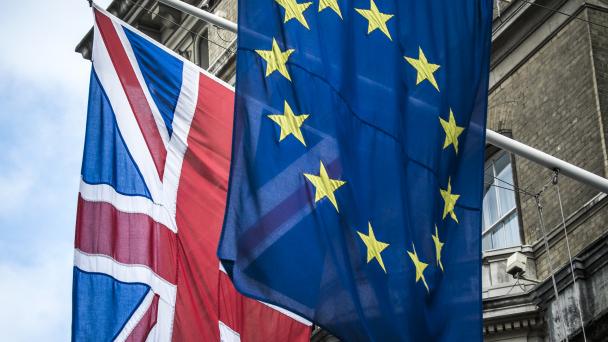Should Labour be questioning the economics of Brexit?

Brexit has proven to be a catalyst for the emergence of a new and significant dividing line in British politics. While people’s views on economic issues still shape the way that they vote, cultural and identity politics have now carved out a significant space in the country’s electoral politics too.
A new British Social Attitudes (BSA) report, released today from the National Centre for Social Research (NatCen), identifies the emergence of a persistent divide between ‘libertarians’ and ‘authoritarians’ on identity issues that now sits alongside the traditional ‘left-right’ debate about economics and inequality. This duality is likely to be reflected in how people vote on 4th July.
Despite the reluctance of both Labour and the Liberal Democrats to talk about Brexit, there is still a strong link between attitudes towards Brexit and party support. Indeed, it has strengthened somewhat in the seven years since the 2016 EU referendum.
Immediately after that ballot, those who had voted Leave (43%) were more than twice as likely as those who backed Remain (16%) to say they were a supporter of the Conservatives. In Labour’s case, support for the party was more than twice as high (47%) among those who voted Remain as it was among those who had backed Leave (22%).
Now those who would vote against EU membership (51%) are more than three times as likely as those who would vote for it (15%) to support the Conservatives. Meanwhile, the level of support for the Labour party is almost four times as high (47%) among those who would vote for membership as it is among those who would vote against it (12%).
Brexit divides libertarians from authoritarians, not those on the left from those on the right. That said, the left-right divide is still apparent in the pattern of Conservative and Labour support. In the latest BSA data, those on the left are 29 points more likely than those on the right to support Labour, while those on the right are 34 points more likely than those on the left to identify as a Conservative, figures that are similar to the position shortly after the 2015 election.
However, how people vote has now also become strongly related to people’s position on the libertarian-authoritarian dimension.
In our most recent survey, libertarians are as much as 42 points more likely than authoritarians to support Labour, the Liberal Democrats or the Green Party, compared to 21 points in 2015. While authoritarians are 32 points more likely to identify as Conservative or Reform, this was 19 points in 2015.
This picture is reflected in how the parties’ supporters divide on specific identity and cultural issues.
One of the sharpest dividing lines between the parties’ supporters is on the perceived cultural consequences of immigration. There is a 33-point difference in the combined level of support for the Conservatives and Reform/UKIP between those who think that migrants undermine Britain’s culture and those who feel migrants enrich its culture. In the case of Labour, the Liberal Democrats and the Greens, the equivalent difference (in the opposite direction) is 48 points.
In 2015, the differences were just 16 points and 21 points respectively.
Those who are ‘very proud’ of Britain’s history are 40 points more likely than those who are ‘not very’ or ‘not at all’ proud to support the Conservatives or Reform/UKIP. The equivalent figure in 2013 was little more than half that – 21 points. There has been a corresponding doubling of the gap in the combined level of support for Labour, the Liberal Democrats and the Greens – those ‘not very’ or ‘not at all’ proud of Britain’s history are now 41 percentage points more likely to support these parties than those who are ‘very proud’; the equivalent gap was 20 points in 2013.
The legal status of transgender people has recently become a salient issue of debate. Since 2016, British Social Attitudes has asked people whether they agree or disagree that, “A person who is transgender should be able to have the sex recorded on their birth certificate changed if they want”.
When this question was first asked, people’s responses differed little by the party they supported. Now, those who disagree with the proposition are 25 points more likely than those who agree to say they identify with the Conservatives or Reform/UKIP. Equally, those who agree are 18 points more likely than those who disagree to support Labour or the Greens. This relatively new debate about an issue of identity has now also become a dividing line in Britain’s electoral politics.
Professor Sir John Curtice, Senior Research Fellow at the National Centre for Social Research (NatCen) says: “It is often suggested that now that Brexit no longer dominates the political agenda that the battle for votes has reverted to being simply a contest between left and right. However, the terrain in which the parties are fighting is now a two-dimensional space in which issues of culture and identity, including Brexit, are as important as the divide between left and right.”
Receive a regular update, sent directly to your inbox, with a summary of our current events, research, blogs and comment.
Subscribe